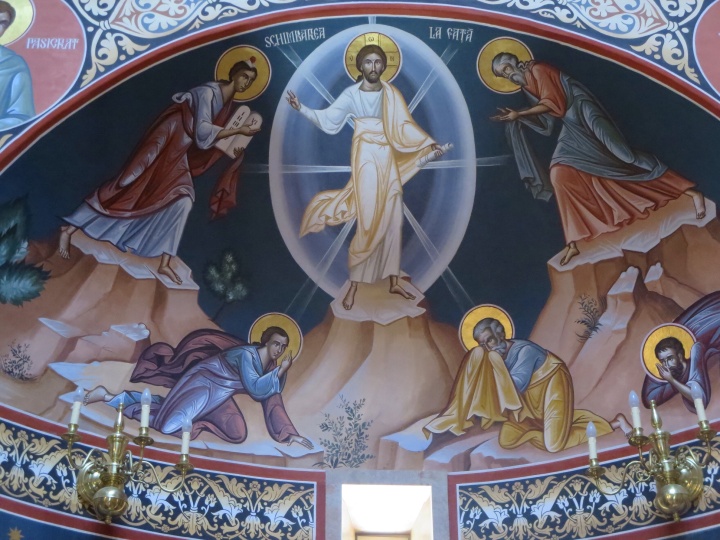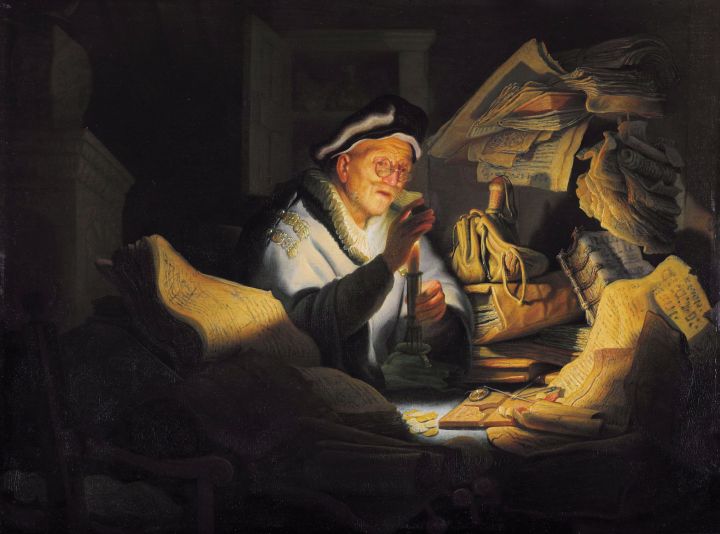In the Ancient World where you sat at a meal mattered an awful lot. The closer you were to the host, the more important you were. The further away, the less important you were. We’re not really used to eating like this, other than at wedding breakfasts: the top table is reserved for the bride and groom, their family, and important guests. Nowadays a seating plan gets round the problem envisaged by Jesus in the start of this morning’s Gospel reading, but the Pharisees were not like this at all. Quite the opposite in fact! They loved rigid hierarchy, they love human honour, and are watching Jesus closely in case He transgresses any social norms. Rather Christ will show them what God has to say about who sits where, and who is invited.
The situation envisaged in the Gospel would be highly embarrassing, in a culture motivated by honour and shame. The last thing you want to do is to lose face, by being asked to move. Instead, by taking the lowest place you make it possible to honoured and loved. The key then is HUMILITY: not thinking less of yourself, but thinking less of yourself and more about others, and putting them first. It’s a case of not saying, ‘It’s all about me!’ which is an example of pride, that greatest of human sin, where we put ourselves at the centre of things, and take a place which belongs to God. Instead we need to learn to trust God, and to let Him be at work in us. We need to recognise our need of God, and our utter dependance upon Him.
In our first reading this morning we hear what happens to the proud: dreadful terrible things. God prefers the lowly: ‘The Lord overthrows the thrones of rulers, and enthrones the lowly in their place. The Lord plucks up the roots of the nations, and plants the humble in their place.’ (Ecclus 10:14-15) We hear this in the song of Hannah in Exodus and in the Magnificat, where Mary is the great model of humility and trust in God. Human power is often exercised in a way which does not correspond with the will of God. In the world around us and throughout human history we can see this. Power is fleeting, whereas the justice envisaged is wholesome and long-lasting.
In the Letter to the Hebrews we hear advice on how Christians should live: in love, love of each other, and God. It is a life of generosity, hospitality to all, care for those less fortunate than ourselves, respectful of the moral order. It’s how God wants us to live, and it leads to human flourishing. Our response to God who sacrificed His Son upon the Cross for us is a sacrifice of praise through how we live our lives, what we say and do.
So, to return to the Gospel, Christ has an important and strong message for His host. We see Our Lord advising people not to be generous and seek a reward. Human Society is complex. The giving and receiving of gifts is a crucial part of how society works. It creates networks of obligation: if you give me something, I am obliged to return the favour. That is fine in human terms, but when we transfer it to the divine realm we are faced with a problem. What can we give God? Does God need or want anything? No! Because God is by nature, perfect, complete, and self-sufficient, God cannot want anything, or need anything. As a result of this God is able to give the purest form of gift, which does not require anything in return. There can be no obligation, because humanity cannot give God anything. God is able give without expecting anything in return. This is what happens in the Incarnation when Our Lord is given to us, and throughout His life and ministry, to His Passion, Death, and Resurrection all He is and does is for us. All is for our benefit. God is generous to us, not so that we can be generous in return, but simply for our good. Likewise our sacrifice of praise is not for God’s benefit, but ours in that we are living the way we should, flourishing, loving and generous.
Instead of normal human interaction and obligation, Christ presents us with a completely different paradigm. The dinner invitations in the Kingdom are for the ‘poor, the crippled, the lame, and the blind’ (Lk 14:13) That’s us! Because God longs to lavish His riches upon us, heal our wounds, and restore our sight. In our care for those who are weak, outcast, or socially undesirable we, in our actions, proclaim the Kingdom of God. We call them to the banquet here and now, that their souls may be nourished with Word and Sacrament. The Eucharist is the banquet of the Kingdom, which heals us, and transforms us, more and more into God’s likeness.
God gives Himself, so the we might live in Him. This is true generosity, generosity which expects nothing in return. All that we are or do is for our good, and the good of humanity, that it may flourish in the Kingdom, living lives of love. Christ is the model of humility and loving service that we should imitate. Christ takes the lowest place, bearing the weight of our sin, on the Cross. There He dies that we might live. There He dies to make us free. May we, in humility, recognise our need of God, and respond to His invitation to the banquet, that He may heal us, restore us and strengthen us to live lives of humility and love, and encourage others to, so that all may sing the praises of God the Father, God the Son, and God the Holy Spirit, to whom be ascribed as is most right and just all might, majesty, glory, dominion, and power, now and forever. Amen.




